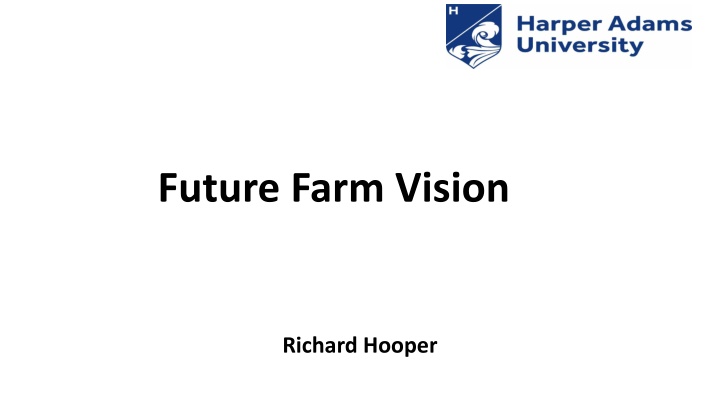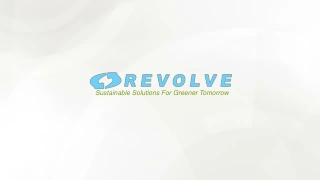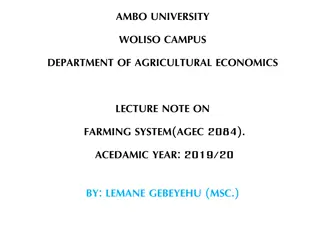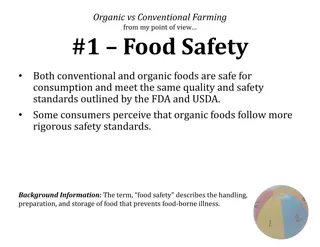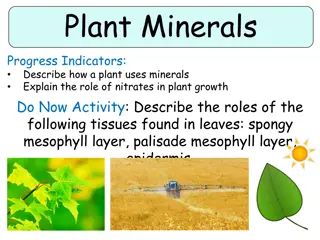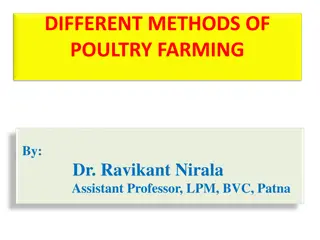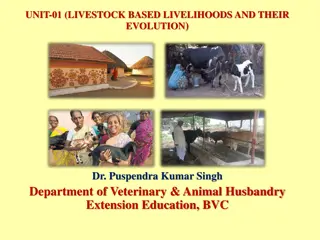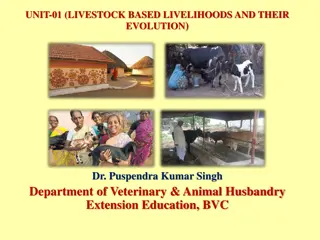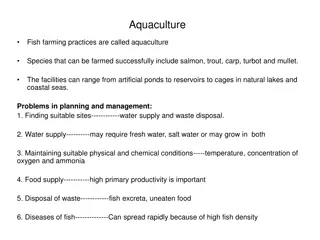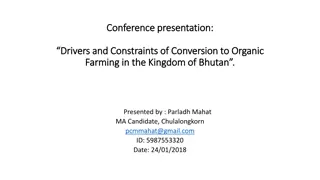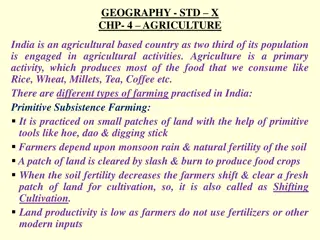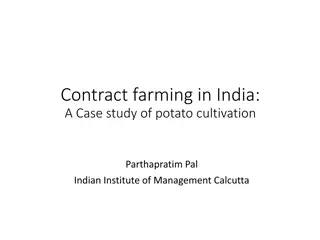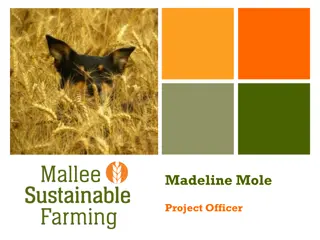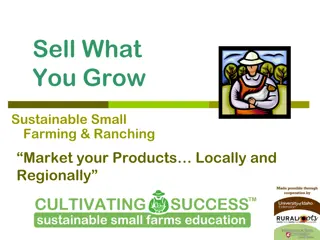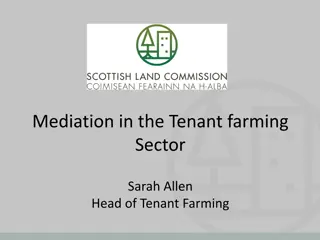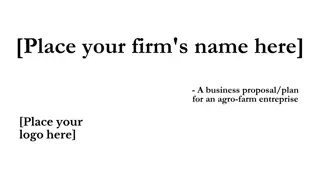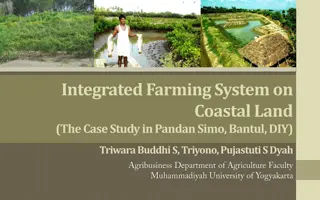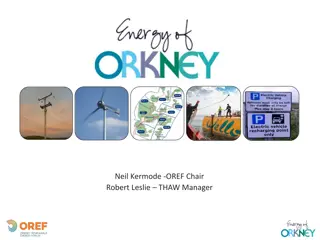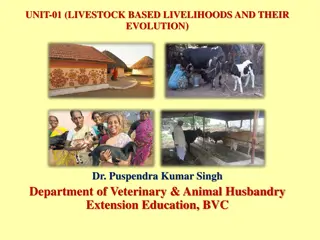Sustainable Farming for a Greener Future
The Future Farm Vision by Richard Hooper emphasizes the importance of creating a sustainable farming enterprise that is ecologically sound, economically viable, and socially responsible. The purpose of the farm includes teaching, research, knowledge transfer, and wider participation with a focus on environmental sustainability. The goal is to achieve net zero by 2030 through enhanced animal breeding, reducing greenhouse gas production, improving soil health, and utilizing innovative practices. The farm groups aim to improve water and energy management, land, and soil health while promoting data collection and benchmarking for continuous improvement.
Download Presentation

Please find below an Image/Link to download the presentation.
The content on the website is provided AS IS for your information and personal use only. It may not be sold, licensed, or shared on other websites without obtaining consent from the author.If you encounter any issues during the download, it is possible that the publisher has removed the file from their server.
You are allowed to download the files provided on this website for personal or commercial use, subject to the condition that they are used lawfully. All files are the property of their respective owners.
The content on the website is provided AS IS for your information and personal use only. It may not be sold, licensed, or shared on other websites without obtaining consent from the author.
E N D
Presentation Transcript
Future Farm Vision Richard Hooper
What is the purpose of the Farm? What is the purpose of the Farm? Teaching Research Knowledge Transfer Wider Participation
The Future Farm Vision The Future Farm Vision A sustainable farming enterprise that must be ecologically sound economically viable socially responsible
Net Zero Feeding the World Without Costing the Earth
We have a key role in developing sustainable land use to meet the objectives of feeding the population sequestrating more carbon than we emit improving soil health improving water quality increasing biodiversity improving animal health and welfare
Net Zero by 2030? Environmental Sustainability Farm Groups Productivity Enhanced animal breeding Use of in feed additives to reduce greenhouse gas production Reduction of fossil based inputs Improve usage efficiencies Precision feeding of plants and animals Improve tillage and cropping activities Novel proteins and waste feeding
Environmental Sustainability Farm Groups Water And Energy Slurry additives Improve slurry storage and handling On farm bioenergy production from crop and manure residues Rain water harvesting and winter rainfall storage Solar photovoltaics Hydrogen production Buffer strips
Environmental Sustainability Farm Groups Land and Soil Health Minimising soil disturbance, physically and chemically Keep the soil covered with a crop Maintain living roots in the soil Maintain plant diversity Livestock for circular economy Increase carbon storage in soils and flora
Environmental Sustainability Farm Groups Data and Benchmarking Gathering all data from inputs and outputs Integrate farm data platforms to collect performance metrics to inform decision making Smart farming projects Standardise carbon accounting
